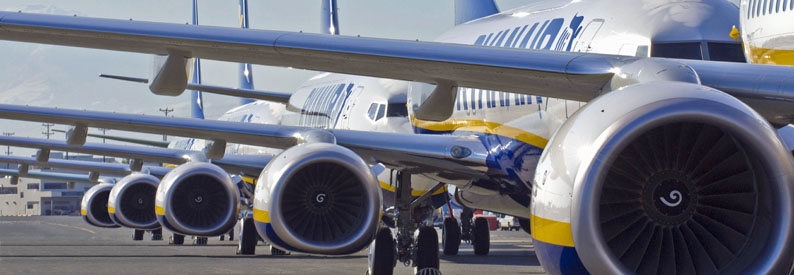Spain Fines EU Low-Cost Airlines EUR179M for Abuses

Spain’s Ministry of Social Welfare and Consumer Affairs has imposed a hefty total fine of EUR179 million (USD186.5 million) on five European low-cost carriers (LCCs) for what it deems “abusive” consumer practices. Ryanair, based in Dublin, bore the brunt of the penalties, receiving more than half of the total fine at EUR107.8 million (USD112.2 million). The government has mandated immediate reforms, particularly targeting carry-on baggage fees, to address these violations.
The fines, enacted under a 2022 law granting the ministry authority to oversee consumer rights, target the following airlines:
- Ryanair: EUR107.8 million (USD112.2 million)
- Vueling Airlines: EUR39.3 million (USD40.9 million)
- easyJet: EUR29.1 million (USD30.3 million)
- Norwegian: EUR1.6 million (USD1.7 million)
- Volotea: EUR1.2 million (USD1.2 million)
These penalties reaffirm an earlier recommendation by the General Secretariat for Consumption and Gaming, which had initially imposed fines in May 2024. The airlines contested these charges, leading to the current enforcement actions.
The Spanish authorities identified “very serious” breaches of consumer law, primarily related to additional fees and charges levied by the LCCs. Specific prohibitions include:
- Fees for Standard Carry-On Luggage: Charging passengers for what was previously considered standard baggage.
- Mandatory Paid Seat Selection: Requiring extra payments to ensure that children and dependents sit next to their companions.
- Ban on Cash Payments: Disallowing the payment of fees using cash at Spanish airports.
- Exorbitant Fees for Printing Boarding Passes: Imposing “disproportionate and abusive” charges for passengers who choose to print their boarding passes at the airport.
- Lack of Fee Transparency: Failing to clearly display additional fees on websites, complicating comparisons for customers.
Ryanair, in particular, faced criticism for its “disproportionate charges” related to the printing of tickets at airports, leading to the substantial fine.
The affected airlines have a two-month window to appeal the decision in an administrative court. Norwegian Airlines, through spokesperson Eivind Hammer Myhre, expressed strong disagreement with the fines, stating, “Norwegian is committed to providing safe, affordable travel, and our baggage policy reflects that. We believe it aligns with EU regulations and is essential for managing weight and limited space on board, ensuring passenger safety, and maintaining on-time performance. We strongly disagree with the Spanish decision, and will follow up on the matter with both Spanish and EU authorities.”
Ryanair Holdings CEO Michael O’Leary also condemned the fines, labeling them as “illegal and baseless.” He argued that the fines, based on a 1960s law predating Spain’s EU membership, would undermine the ability of low-cost airlines to offer lower fares by passing on cost savings to consumers.
Both Ryanair and easyJet have announced their intention to appeal the fines. Volotea has not yet responded to requests for additional comments, while Vueling and easyJet directed inquiries to the Spanish Airlines Association (Asociación de Líneas Aéreas – ALA).
The ALA criticized the ministry’s unilateral decision, stating, “ALA considers that the unilateral decision of this ministry is nonsense that turns its back on the EU and undermines the free market. The association warns that if the consumer sanction is applied, Spain would be the only country in the EU where the practice of charging for carry-on luggage would be prohibited, leaving the airlines that operate in this country at a competitive disadvantage.”
The association also noted that airlines will maintain their current policies until the administrative appeal process concludes. Furthermore, ALA highlighted ongoing discussions within the European Commission aimed at harmonizing airline baggage rules across the European Union, emphasizing that any regulatory changes should occur at the EU level rather than individual member states.
This crackdown by Spain underscores a broader tension between national regulatory bodies and the low-cost airline model, which relies heavily on ancillary fees to maintain competitive base fares. As the airlines prepare to challenge the fines, the outcome could have significant implications for consumer rights and the operational practices of LCCs across Europe.
Related News: https://suspicious-zhukovsky.67-21-117-18.plesk.page/category/air-travel-business/airline-finance/
Sources: AirGuide Business airguide.info, bing.com, ch-aviation.com
